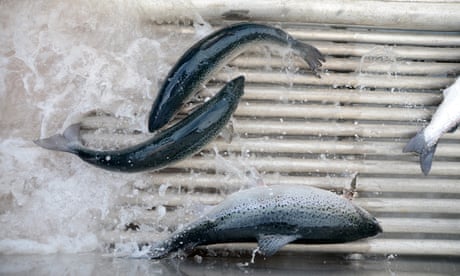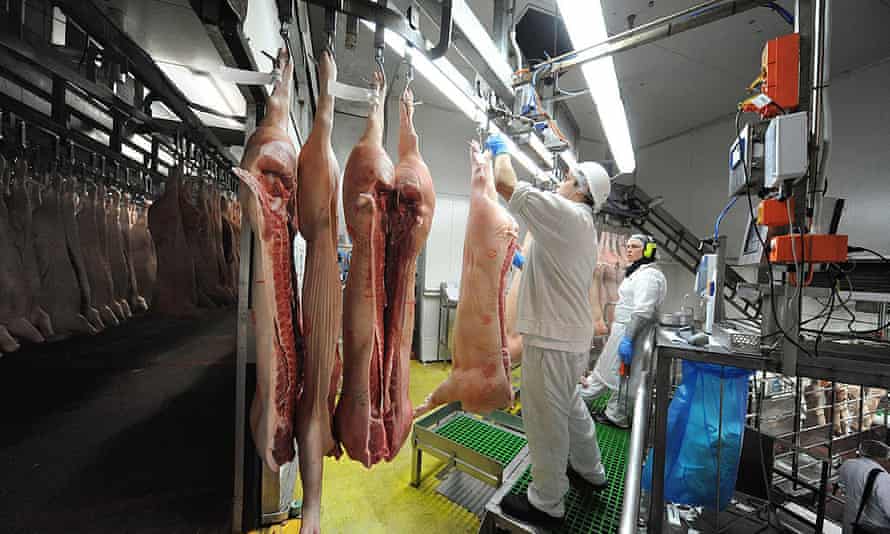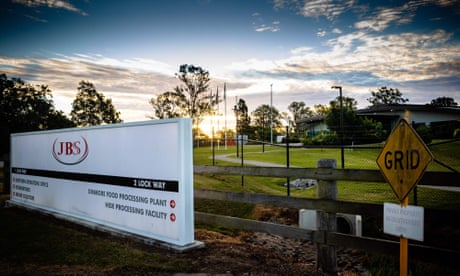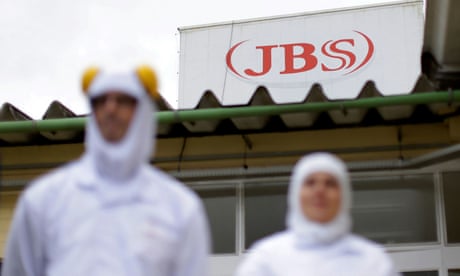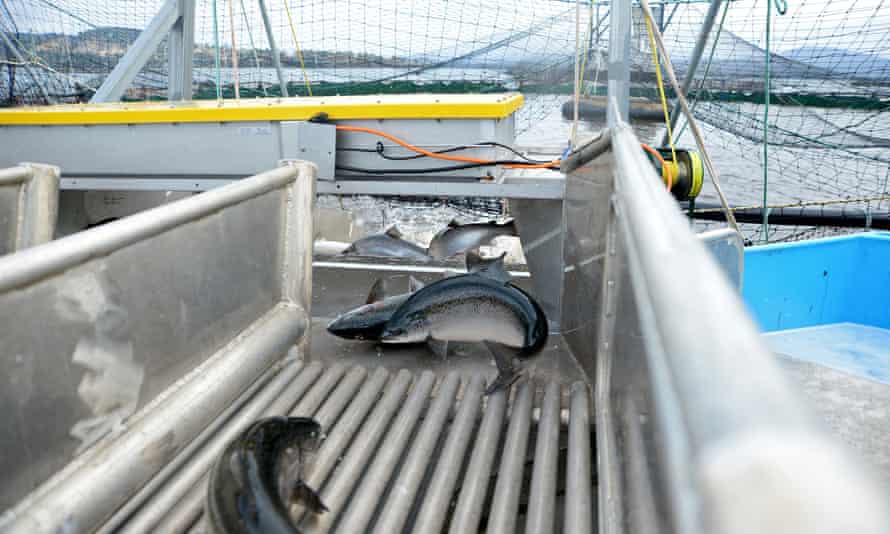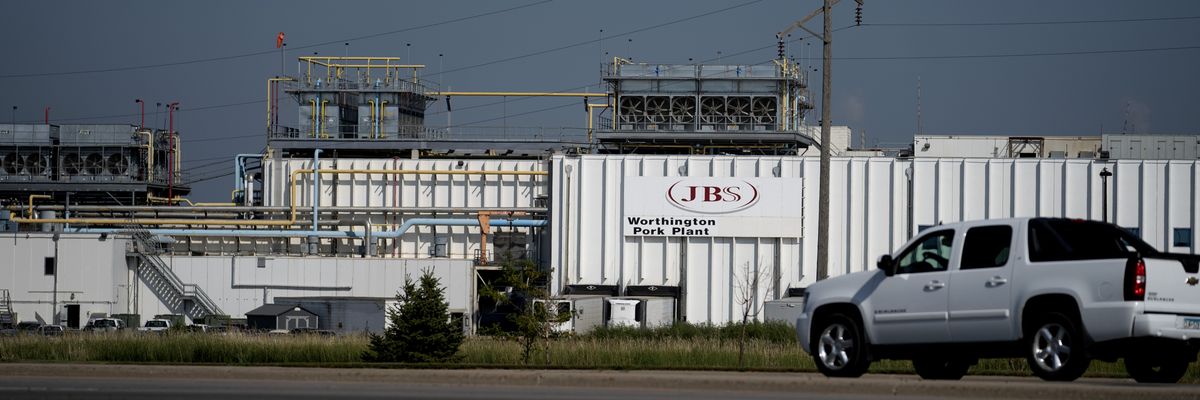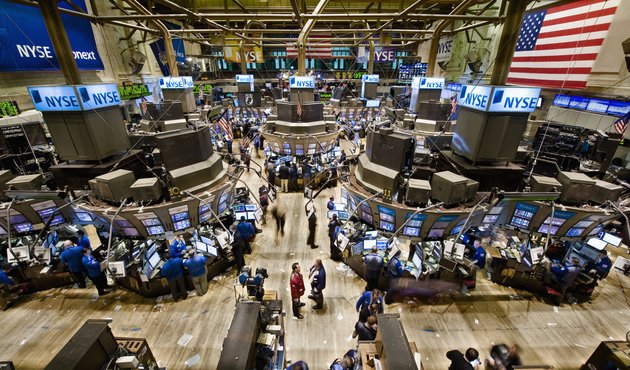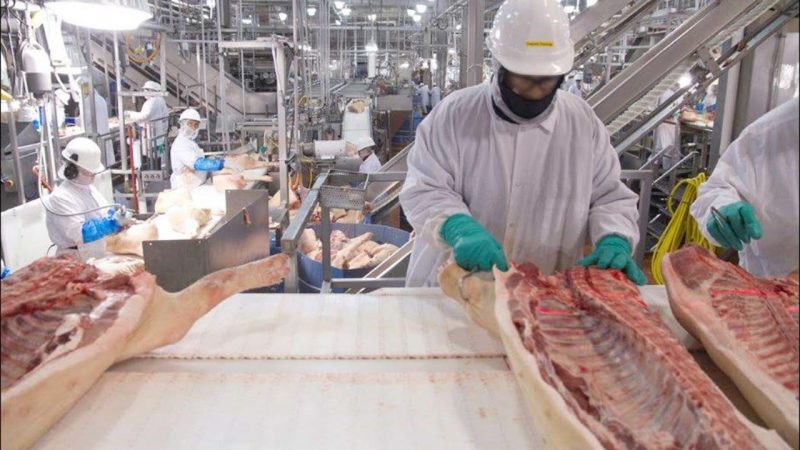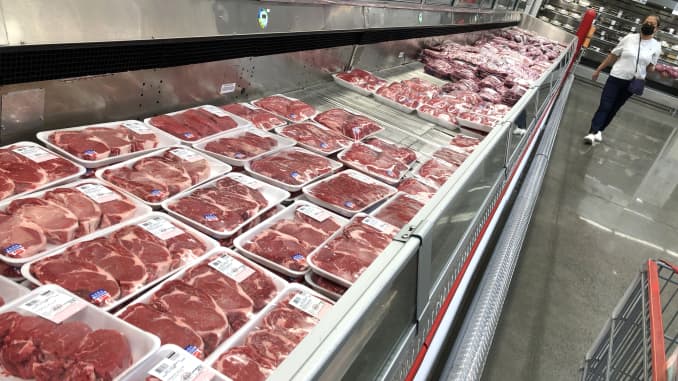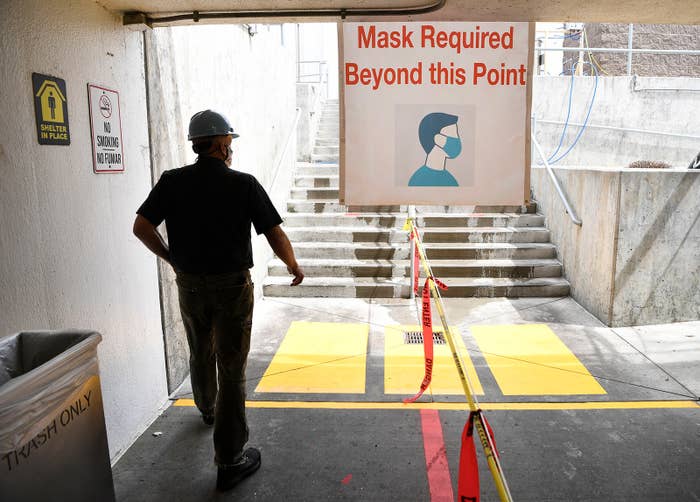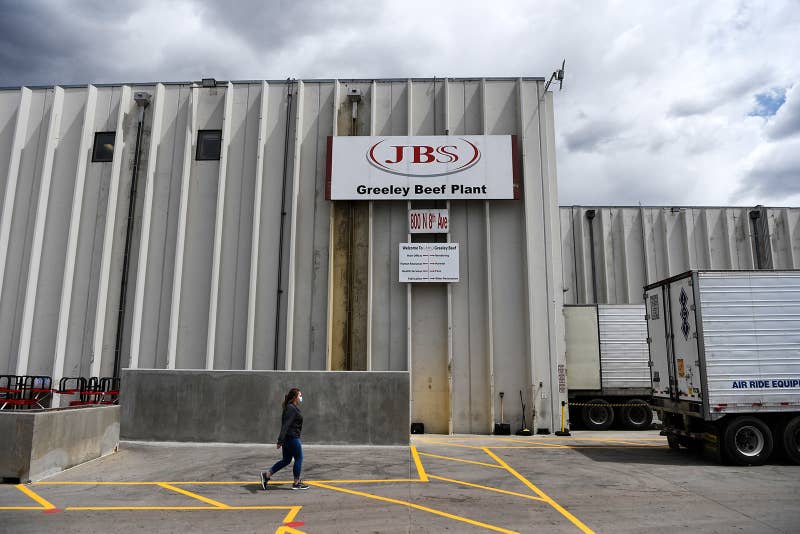BUT THE UFCW FOUGHT BACK IN CANADA AND THE USA. THEY ORGANIZED THOSE WORKERS IN CARGILL PLANTS, EVEN IF IT TOOKS DECADES OF STRUGGLE AS IT DID IN ALBERTA WITH THE UFCW ORGANIZING THEIR
PLANT IN SOUTHERN ALBERTA, WITH WORKERS FROM ECUADOR, SOMALIA,
ETHIOPIA, AND OTHER COUNTRIES IN AN ALL WHITE MORMON TOWN.
JBS IN CANADA

By Kimberly Kindy Washington Post
November 7, 2019
This story has been updated.Two men in cowboy hats stood behind President Trump in May as he announced a $16 billion agricultural bailout. Trump said the financial relief from his trade war with China would help American farmers, reinforcing an earlier tweet when the president said the funds would help “great Patriot Farmers.”But not all beneficiaries of the taxpayer-funded program are American farmers or patriots. JBS, a Brazilian company that is the largest meat producer in the world, has received $78 million in government pork contracts funded with the bailout funds — more than any other U.S. pork producer.
JBS’s winning hand in securing a quarter of all of the pork bailout contracts is one example of the power a small number of multinational meat companies now hold in the United States. JBS has become a major player in the United States even as it faces price-fixing and other investigations from the federal government.
The company’s explosive growth through acquisitions over the past decade has been a dominant factor in the consolidation of the meat industry by multinational companies.
A dozen years ago, JBS did not own a single U.S. meat plant. Today, JBS and three other food companies control about 85 percent of beef production. JBS and Tyson Foods control about 40 percent of the poultry market. And JBS and three other companies control nearly 70 percent of the pork market.
JBS and the large multinational meat companies, including Tyson Foods, Smithfield Foods and Cargill, use their size and global presence to create efficiencies that enable them to produce a variety of quality foods at a lower price. But many agricultural economists and food marketing analysts say when so few companies control the market, they can drive smaller operators out of business, reducing competition and sometimes raising prices for consumers.
[Trump farm bailout money will go to Brazilian-owned meatpacking firm, USDA says]
Such consolidation has been condemned by eight Democratic presidential candidates, with Sen. Elizabeth Warren (D-Mass.) being the most outspoken. She’s pledged to break up the larger food and meat companies because the companies can use their “economic power to spend unlimited sums of money electing and manipulating politicians” and because they are “leaving family farmers with fewer choices, thinner margins and less independence.”
The candidates have other concerns, including threats to the availability and affordability of the nation’s food supply. Large food companies have in the past reduced supply to drive up the price of their products. The Justice Department is investigating whether JBS and other poultry companies illegally coordinated to do just that.
JBS said in a written statement that its American subsidiary, JBS USA, is a vital part of the agricultural economy. The company employs more than 60,000 people in the United States and buys from more than 11,000 U.S. farmers and ranchers. JBS and Agriculture Secretary Sonny Perdue say the bailout funds JBS received are helping American farmers because the company buys its hogs from them.
“This is no different than people buying Volkswagens or other foreign autos where their executives may have been guilty of some issue along the way,” Perdue said in a statement. “They still buy the cars.”
JBS CEO Gilberto Tomazoni told analysts in August that JBS is “at the best moment in its history.” He said an upcoming stock offering in the United States will allow the company to continue to expand; JBS says expansion efforts “will better position the company to sustainably meet evolving customer and consumer expectations.”
However, U.S. Sens. Marco Rubio (R-Fla.) and Robert Menendez (D-N.J.) recently challenged whether JBS’s entry into the U.S. market should have been allowed.
USDA pilot program fails to stop contaminated meat
Corruption scandals have engulfed JBS in Brazil, the senators wrote to Treasury Secretary Steven Mnuchin, and company officials have “admitted criminal conduct to secure loans that were used for investment in the United States.” They’ve asked for a review of the purchases.
JBS said it received all “necessary regulatory approvals from the . . . antitrust authorities, including the Department of Justice” before purchasing each of the companies.
Small farmers and cattlemen are glad some politicians are listening. They say the federal government’s bailout — and JBS’s share of it — are reminiscent of the bank bailouts during the Great Recession. Even though many of the banks were under investigation by the federal government, they still received federal money.
“I think it’s one of those situations where it’s too big to fail,” said Greg Gunthorp, who runs his family hog farm in Indiana. “We are talking about a company that has shown it doesn’t play by the rules.”
Buying spree
JBS purchased its first U.S. meat plants in 2007, using Brazilian bank loans the owners secured illegally, court records show. In a plea deal, brothers Joesley and Wesley Batista told prosecutors how they bribed bank and government officials to receive low-interest loans.
The bank loans and other funding allowed JBS to consolidate five U.S. companies — which produced pork, poultry and beef — into a single company, JBS USA.
In 2007, JBS bought pork and beef producer Swift and Co. In 2008, it purchased the beef operations of Smithfield Foods. In 2009, it acquired poultry producer Pilgrim’s Pride. In 2015, JBS bought Cargill’s pork division. And in 2017, the company purchased poultry producer GNP Co.
“JBS used their ill-gotten gains to dominate the meat market,” said Joe Maxwell, a fourth-generation hog farmer and executive director of the Organization for Competitive Markets, a nonprofit group that fights income disparities in U.S. agricultural markets. The loans, Maxwell said, “allowed them to become the big dogs almost overnight.”
JBS said it did not rebut the plea deal but said it also raised capital by selling company stock.
The bailout payments underscore JBS’s advantage over smaller domestic competitors. Some of its pork plants kill more than 1,000 pigs an hour, enabling JBS to operate off a slimmer profit margin and underbid other companies for the bailout contracts.
JBS is also able to shift production to avoid high tariffs. While U.S. pork exported to China faces a 72 percent tariff, pork from JBS plants in Brazil faces only a 10 to 12 percent tariff.
JBS increased production where tariffs were lower, benefiting twice from the Chinese trade war — first by collecting the bailout money and then by increasing pork production at its plants outside the United States, which JBS announced this year.
How beef demand is accelerating the Amazon’s deforestation and climate peril
JBS has grown and thrived despite multiple federal inquiries. The Agriculture Department said JBS underpaid family farmers and ranchers last year at three slaughterhouses in Colorado, Nebraska and Texas by claiming the cattle weighed less than they did. Domestic cattle owners say they lost millions of dollars.
USDA fined JBS $79,000.
Cattle producers said the fine was an insult to small ranchers. “That’s pennies to them,” said Steve Krajicek, an independent cattle producer who sells to JBS. “They make in excess of $1 million a day at the Nebraska plants. It’s not even enough for them to blink an eye or to reconsider how they are doing business.”
JBS said a software change caused an error in paying sellers and those who were underpaid were later reimbursed.
JBS’s growth has not been slowed by heftier fines for worker safety violations — about $20 million over the past decade, according to records from the U.S. Occupational Safety and Health Administration.
A Washington Post analysis of OSHA data from 2015 to 2018 shows that JBS has the highest rate of serious worker injuries — including those involving amputation and hospitalization — among meat companies in the United States, and the second highest rate of serious injuries among all companies in the United States.
The Post used federal data on the number of serious worker injuries and the number of employees to determine the injury rates. JBS disagreed with The Post’s methodology and said JBS was better than the industry average in other safety metrics using federal data, such as time lost because of injury.
Consumer concerns
Consolidation can lead to benefits for consumers. Trey Malone, an agricultural economist at Michigan State University, said consolidation has led to lower prices and an explosion of new food products. A grocery store in 1995 had about 8,000 options on average. Now, it’s more than 45,000.
“As companies get larger, you get economies of scale. The cost of production per unit decreases,” Malone said. “Companies increasingly compete at quality levels, offering hormone-free meat, Angus beef. They create new products. From a consumer perspective, you have higher quality meat and cheaper meat products.”
But the small number of major players increases the possibility that companies could collude to increase prices, Malone and other economists say. A lawsuit filed in 2016 by a food service firm in New York alleges that JBS-owned Pilgrim’s Pride and other poultry companies intentionally destroyed flocks of breeder hens to reduce the poultry supply.
The coordinated effort resulted in a 50 percent increase in the wholesale price of broiler chickens, the lawsuit claims. The civil suit is on hold as the Justice Department investigates.
JBS denied the accusations in the lawsuit. Lawyers for Pilgrim’s Pride and other poultry companies filed a motion to dismiss the case in January.
JBS said concentration in the meat industry has been “fairly static” since the mid-1990s. Analysts point to data showing the market has become more concentrated; they say companies with plants and processing facilities around the world increasingly dominate.
“This is a consumer disaster because of the amount of power, money and political clout that these companies hold,” said Marion Nestle, a New York University professor who studies the food industry. “If you own everything, you get to set the rules, you get to set the price, because there is no real competition.”
[Inspector General wants to know if USDA concealed worker safety data]
With a few large operators, meat contamination can pose a greater threat because their products end up on plates across the nation. Retail giants Costco, Walmart and Sysco all sell JBS products.
For example, in 2018, JBS ordered the largest recall of ground beef in U.S. history, according to the U.S. Centers for Disease Control and Prevention. About 12 million pounds of beef contaminated with a virulent strain of salmonella in 30 states sickened 403 people, of whom 117 were hospitalized. Less than 2 percent of the meat was recovered.
“They can cause a major food safety disaster,” said Tony Corbo, senior lobbyist for Food & Water Watch, a consumer advocacy group. “These plants are bigger, turn out product faster and the federal government has deregulated them, giving plant owners more control over safety inspections.”
JBS said it quickly responded by issuing the recall. The company said it was working with “internal and external food safety experts” to “ensure the safety of our products.”
Rancher complaints
Small cattle ranchers launched a social media campaign in October at a rally called “Stop the Stealin’ ” to protest the power JBS and other large beef processors have over setting prices for cattle. Ranchers said they are being underpaid by about $200 a head. JBS said it offers competitive prices for cattle.
About 400 cattlemen and women attended the rally in Nebraska — some riding on horseback. Younger ranchers downloaded the Twitter app onto the smartphones of the older ranchers, teaching them how to tweet their protests directly to Trump.
“Stop packer collusion!!” tweeted Casey Perman, a small rancher in South Dakota. “Time to help the little guy like you promised . . . #FairCattleMarkets @realDonaldTrump.”
The ranchers and some Democratic members of Congress say the concentrated power of these companies gives them too much leverage over federal regulators. “These multinational corporations are taking over the food supply and federal government has been complicit in this; USDA has been complicit in this,” said Rep. Rosa L. DeLauro (D-Conn.).
Since entering the U.S. market in 2007, JBS has spent more than $7.7 million on lobbying, records show, making it the fourth-largest spender in the meat processing industry. It’s also won more than $900 million in government meat contracts, second only to the U.S.-based Tyson Foods, according to a Post analysis of government records.
The company’s reach into the federal government includes the successful recruitment of a top regulator. JBS created a new position — global head of food safety and quality assurance — in 2017, giving the post to a former top food-safety regulator at USDA named Al Almanza.
At USDA, Almanza was viewed by small farmers and food safety groups as an advocate for the big producers; he led efforts to deregulate poultry, pork and beef inspections sought by JBS and other large companies. Three days after leaving USDA, Almanza started at JBS.
In a statement, JBS said Almanza “strongly disagrees with any notion that he had any interest in maximizing industry profits over safeguarding public health during his career of public service.”
Maxwell’s group is also focusing on Perdue and the bailout money he has awarded to JBS. The small ranchers’ campaign is circulating a political cartoon of Perdue and JBS’s Wesley Batista in bed together with Perdue throwing wads of bailout cash into the air.
Andrew Ba Tran and Alice Crites contributed to this report.

 Brazilian billionaire Joesley Batista, who runs JBS with his brother Wesley. In Australia, the meat empire is embroiled in takeover battles and litigation with the tax office. Photograph: Adriano Machado/Reuters
Brazilian billionaire Joesley Batista, who runs JBS with his brother Wesley. In Australia, the meat empire is embroiled in takeover battles and litigation with the tax office. Photograph: Adriano Machado/Reuters